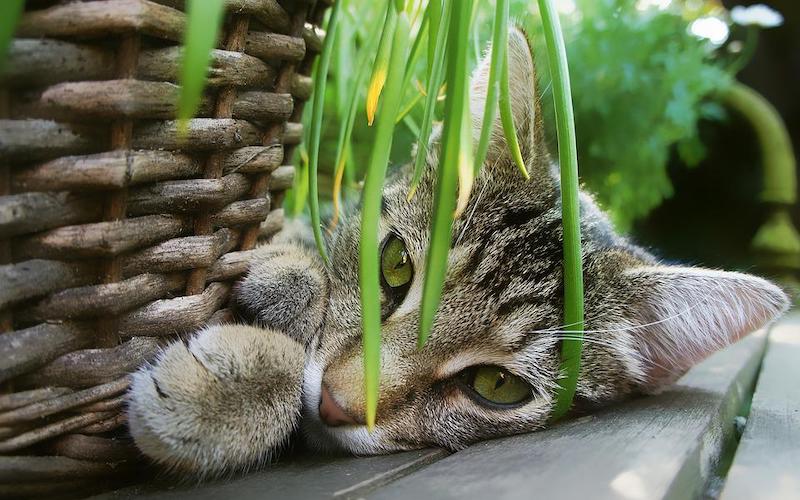Agapanthus plants are poisonous and should not be consumed by humans and pets. All parts of this plant contain a toxin called saponin, although the roots, leaves, and sap have the most concentrated levels. Saponins can cause gastrointestinal irritation; however, they rarely cause severe toxicity or death in humans. Agapanthus species have been used to induce abortion in south Africa, possibly due to effects on prostaglandins.
Are Agapanthus Poisonous to Children?
All parts of the plant are poisonous to children. The rhizome (roots) and leaves contain higher levels of the sap, which makes these parts more toxic. A person would need to eat a large quantity of the plant to experience severe toxicity. Fortunately, agapanthus does not taste good to children, so they are not likely to eat it.

Are Agapanthus Poisonous to Dogs?
Agapanthus is toxic to dogs; however, the dog would have to eat a large quantity of it to get sick. As in humans, agapanthus does not taste good to dogs and is typically avoided. Puppies, in general, are more likely to chew on plants, so keep an eye on any nibbling and remove the plant if necessary. Common symptoms of toxicity include nausea, vomiting, and diarrhea.
Are Agapanthus Poisonous to Cats?
Agapanthus is more toxic to cats than dogs and humans because cats weigh less. Even consuming a small amount of the leaves could lead to gastrointestinal symptoms such as vomiting and diarrhea. Ingesting large amounts of this plant could be fatal and requires an immediate call to the vet. If the plant’s sap gets onto the cat’s skin, you might see a rash or swelling. Cats typically dislike the taste of this plant, but kittens or cats with chewing tendencies may be more at risk and should be watched closely around agapanthus.

Are Agapanthus Poisonous to Other Animals?
The rhizomes are poisonous to other mammals such as goats, horses, and cows. The leaves of agapanthus are palatable to horses and livestock and don’t seem to cause any issues. Chickens typically avoid agapanthus, but reports of chickens eating the leaves were not associated with any signs of toxicity.
Symptoms Of Agapanthus Poisoning
Symptoms of agapanthus poisoning in mammals include nausea, vomiting, abdominal pain, and diarrhea if ingested. The sap of the plant can cause ulceration of the mouth, burning sensation, skin irritation, and rash. Always check with your doctor or veterinarian for guidance if you suspect agapanthus poisoning.
Here are some common symptoms to look out for:
- Nausea
- Vomiting
- Diarrhea
- Mouth ulcer
- Rash
Preventing Agapanthus Poisoning
To prevent poisoning from agapanthus, keep this plant out of the reach of small children and pets. For container plantings, move the agapanthus to a surface the child or pet can’t access, or add a barrier around the container. If you are growing the plant in the ground, put it outside the pet’s fenced area or add a cage around the plant for protection. Provide pet cats and rabbits with safer plants to nibble, such as wheat, oat, or rye grass. If you are not able to keep your child or pet away from your agapanthus plant, consider replacing it with a non-toxic selection.
Pet Poison Helpline
If something were to happen to your furry friend, and you suspect that they are suffering from agapanthus poisoning, there is a poison control hotline to call for 24/7 vet advice. It is called the Pet Poison Hotline, and their phone number is (855) 764-7661.

Sources: "Lily of the Nile, Agapanthus Lily, African blue lily." Colorado State University Guide to Poisonous Plants. poisonousplants.cvmbs.colostate.edu
 |
Author Jessica Mercer - Published 6-28-2022 |
